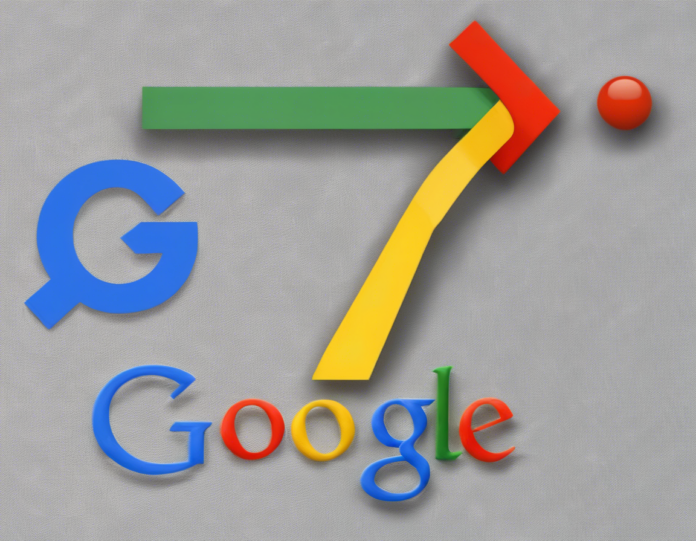In the digital age of information, search engines play a crucial role in helping users navigate and find relevant content on the vast world wide web. While Google is undoubtedly the most popular and widely used search engine globally, other players like Yandex have their own unique features and benefits that cater to specific demographics and regions. In this comprehensive comparison, we will delve into the key differences and similarities between Yandex and Google, examining their search algorithms, user interfaces, features, privacy policies, and more.
Search Algorithms and Results
Both Yandex and Google use complex algorithms to crawl and index web pages, determine page relevance, and rank search results. Google is renowned for its sophisticated PageRank algorithm, which considers factors like backlinks, content quality, and user experience to deliver highly relevant search results. On the other hand, Yandex utilizes its MatrixNet algorithm, which focuses on semantic analysis and contextual understanding of queries to provide accurate search results, particularly in Russian language searches.
User Interface and Experience
Google is known for its minimalist and user-friendly interface, featuring a clean search bar, instant suggestions, and intuitive search filters. Yandex, on the other hand, offers a visually appealing interface with rich imagery, news snippets, and a focus on contextual search results. Yandex also provides specialized search verticals like images, videos, maps, and news, tailored to cater to the preferences of Russian-speaking users.
Features and Services
When it comes to additional features and services, both Google and Yandex offer a range of tools to enhance the search experience. Google provides services like Google Maps, Gmail, Google Drive, and Google Translate, seamlessly integrated into its search platform. Conversely, Yandex offers services like Yandex Maps, Yandex Disk for cloud storage, Yandex Market for online shopping, and Yandex Music for streaming music, catering to the needs of users in Russia and neighboring countries.
Privacy and Data Protection
Privacy concerns have become increasingly important in the digital landscape, prompting search engines to enhance their data protection policies. Google has faced scrutiny over its data collection practices and targeted advertising, leading to the implementation of tools like My Activity and Privacy Checkup for users to manage their privacy settings. Yandex emphasizes user privacy and data protection through features like Incognito mode, encrypted connections, and user consent for personalized ads, ensuring a secure search environment for its users.
Localization and Language Support
One of the key distinctions between Yandex and Google lies in their localization efforts and language support. While Google operates globally in multiple languages and regions, Yandex has a strong presence in Russia and other CIS countries, offering localized search results, maps, and services in Russian and several other languages spoken in the region. This regional focus allows Yandex to tailor its search results and features to the specific preferences and needs of Russian-speaking users.
Mobile and Voice Search
With the proliferation of mobile devices and the rise of voice search technology, search engines have adapted to accommodate these trends. Google dominates the mobile search market with its Android operating system, Google Assistant, and voice search capabilities, allowing users to search using voice commands and receive personalized results. Yandex has also invested in mobile and voice search technology, developing its own voice assistant, Alice, and optimizing its search engine for mobile devices to deliver a seamless search experience on the go.
Advertising and Monetization
Both Google and Yandex generate revenue primarily through advertising, offering businesses the opportunity to promote their products and services to a targeted audience. Google Ads is a leading advertising platform that allows businesses to create text, display, and video ads that appear in search results and across the Google Display Network. Yandex.Direct serves a similar purpose, enabling advertisers to reach potential customers through keyword-targeted ads displayed on Yandex search results pages and partner websites, helping businesses increase their online visibility and drive traffic to their websites.
Censorship and Content Regulation
In the realm of censorship and content regulation, both Google and Yandex face challenges in balancing freedom of expression with compliance with local laws and regulations. Google has encountered censorship issues in countries like China and Russia, where certain content is restricted or filtered based on government mandates. Yandex has also grappled with censorship demands, particularly in Russia, where laws require search engines to remove links to banned websites and illegal content, highlighting the complexities of operating in a regulated online environment.
Innovation and Future Outlook
As technology continues to evolve, search engines must innovate and adapt to meet changing user demands and preferences. Google remains at the forefront of innovation with developments in artificial intelligence, machine learning, and personalized search experiences, aiming to deliver relevant and customized results to users worldwide. Yandex continues to invest in AI and natural language processing technologies to enhance its search capabilities and offer users intuitive and efficient search solutions tailored to their needs.
Conclusion
In conclusion, Yandex and Google are two leading search engines that cater to distinct audiences with their unique features, services, and regional focuses. While Google maintains its global dominance and pioneering spirit in search technology, Yandex excels in serving Russian-speaking users with tailored search results, localized services, and a commitment to user privacy. Whether users prioritize comprehensive search results, intuitive user interfaces, or privacy protection, both Yandex and Google continue to shape the search landscape and provide valuable resources for navigating the vast expanse of the internet. By understanding the differences and similarities between these two search giants, users can make informed choices based on their preferences and search requirements.
Frequently Asked Questions (FAQs)
-
Is Yandex better than Google in Russian language searches?
Both Yandex and Google excel in providing accurate search results in Russian language searches. Yandex’s MatrixNet algorithm is specifically designed to understand the nuances of the Russian language, making it a preferred choice for users in Russia and neighboring countries. -
Does Google offer more features and services compared to Yandex?
Google offers a wide range of services including Gmail, Google Maps, and Google Drive, integrated into its search platform. While Yandex provides similar services like Yandex Maps and Yandex Disk, Google has a broader global reach and a diverse portfolio of tools and applications. -
Which search engine prioritizes user privacy, Yandex or Google?
Both Yandex and Google have implemented measures to enhance user privacy and data protection. Yandex emphasizes user consent for personalized ads and offers features like encrypted connections, while Google provides tools like My Activity and Privacy Checkup for users to manage their privacy settings. -
Do Yandex and Google have voice search capabilities?
Both Yandex and Google have voice search capabilities, allowing users to search using voice commands on their devices. Google’s voice assistant, Google Assistant, is widely recognized for its accuracy and integration with Google’s services, while Yandex has developed its own voice assistant, Alice, for seamless voice search experiences. -
Which search engine is more widely used globally, Yandex or Google?
Google is the most widely used search engine globally, commanding a significant market share in multiple countries and languages. Yandex, on the other hand, has a strong presence in Russia and CIS countries, where it is the preferred search engine for Russian-speaking users. -
How do Yandex and Google handle advertising and monetization?
Both Yandex and Google generate revenue through advertising, offering platforms like Yandex.Direct and Google Ads for businesses to promote their products and services. Advertisers can create targeted ads that appear in search results and across partner websites, driving traffic and increasing online visibility. -
Are there any major differences in search results between Yandex and Google?
While both Yandex and Google strive to provide relevant and accurate search results, there may be differences in rankings and algorithms that impact the results displayed. Factors like localization, language support, and user preferences can influence the search results shown by each search engine. -
Do Yandex and Google have similar approaches to content regulation and censorship?
Yandex and Google face challenges in navigating content regulation and censorship laws in different countries. Both search engines aim to balance freedom of expression with compliance with local regulations, leading to occasional content restrictions and filtering based on government mandates. -
How do Yandex and Google approach innovation in search technology?
Google is known for its pioneering spirit and continuous innovation in search technology, investing in AI, machine learning, and personalized search experiences. Yandex also focuses on innovation, leveraging AI and natural language processing to enhance its search capabilities and provide intuitive search solutions to users. -
Can users switch between Yandex and Google for different search needs?
Users have the flexibility to switch between Yandex and Google based on their search requirements and preferences. While Google offers a global search experience and a diverse range of services, Yandex caters to Russian-speaking users with localized search results and services tailored to their needs.





